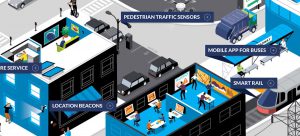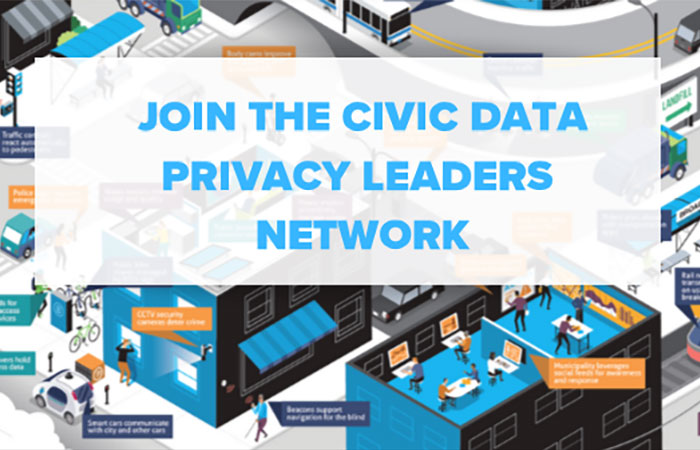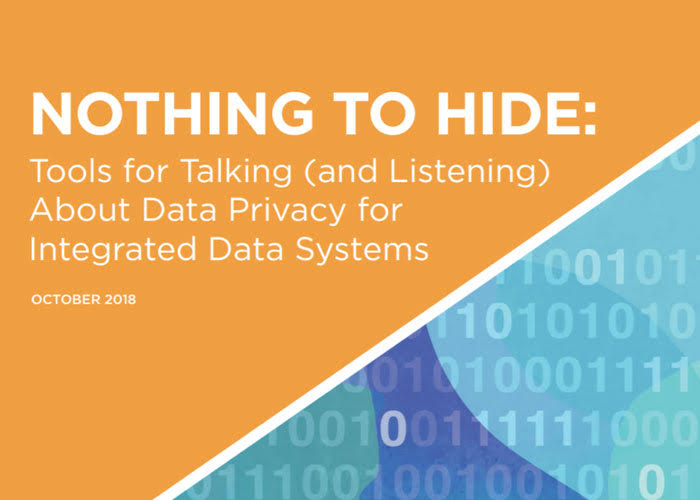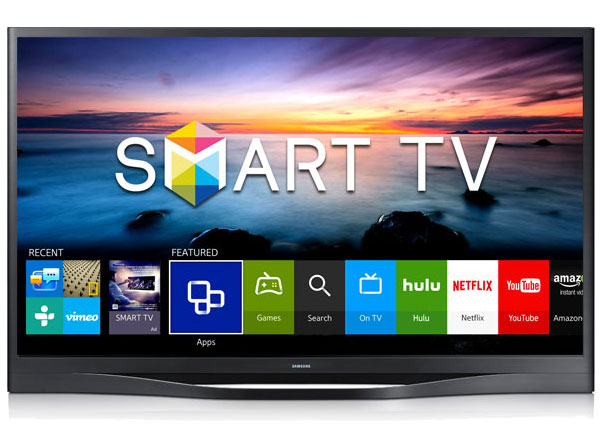Connected technologies and always-on data flows are helping make today’s cities and communities more livable, productive, and sustainable. At the same time, these technologies raise concerns about individual privacy, freedom of choice, and institutional discrimination. How do we leverage the benefits of a data-rich society while giving members of our community the confidence of knowing their privacy is protected? How can we address pressing local problems — from housing to highways, potholes to policing — and deliver public services in equitable, privacy-conscious ways?
Working collaboratively with public, private, academic, and civil society leaders, FPF builds tools and best practices to guide how cities and local communities collect, manage, and use personal data to improve services for individuals. A cornerstone of this work is FPF’s Civic Privacy Leaders Network, a peer network supported by the National Science Foundation that brings together privacy leaders from 30+ local governments across the U.S. and Canada to navigate emerging privacy issues, share practical guidance, and promote fair and transparent data practices.
Visit the Smart Communities Resources web page for a comprehensive list of FPF’s ongoing work in this area.
Featured
Representatives Latta, Schakowsky To Highlight Data and Privacy Considerations for Connected Vehicles at MobilityTalks International Conference
Remarks Set for Morning of April 3 at Conference Produced by The Washington Auto Show Future of Privacy Forum’s Lauren Smith to Moderate Discussion on Privacy Risks in Today’s Vehicles WASHINGTON, March 29, 2019 — The Future of Privacy Forum (FPF) and two senior members of Congress will discuss data and privacy in connected vehicles […]
Municipal Leaders Joining Network to Advance Civic Data Privacy
Connected technologies and always-on data flows are helping make today’s cities and communities more livable, productive, and equitable. At the same time, these technologies raise concerns about individual privacy, autonomy, freedom of choice, and institutional discrimination. How do we leverage the benefits of a data-rich society while giving members of our community the confidence of […]
Smart Communities: A Conversation with Kelsey Finch
One of FPF Policy Counsel Kelsey Finch’s areas of focus is Smart Communities, a field which draws from many of FPF’s issue areas. From her Seattle office, she has the opportunity to do hands-on work with cities in the Pacific Northwest. Last year, she worked with city officials on Seattle’s first Open Data Risk Assessment, […]
The Future of Mobility in a Connected World: FPF’s Lauren Smith on Connected Cars, Data, and more
FPF is celebrating our tenth anniversary. In recognition of this milestone, FPF policy experts will be sharing their thoughts on FPF’s progress and the work ahead in a series of blogs over the coming weeks. Our 10th anniversary celebration will be on April 30. RSVP here. This week, Policy Counsel Lauren Smith discusses connected cars and […]
Nothing to Hide: Tools for Talking (and Listening) About Data Privacy for Integrated Data Systems
Data-driven and evidence-based social policy innovation can help governments serve communities better, smarter, and faster. Integrated Data Systems (IDS) use data that government agencies routinely collect in the normal course of delivering public services to shape local policy and practice. They can use data to evaluate the effectiveness of new initiatives or bridge gaps between public services and community providers.
Future of Privacy Forum and Actionable Intelligence for Social Policy Release ‘Nothing to Hide: Tools for Talking (and Listening) About Data Privacy for Integrated Data Systems’
Washington, DC – Today, Future of Privacy Forum and Actionable Intelligence for Social Policy released Nothing to Hide: Tools for Talking (and Listening) About Data Privacy for Integrated Data Systems. Nothing to Hide provides governments and their partners working to integrate data for policy and program improvement with the necessary tools to lead privacy-sensitive, inclusive engagement efforts. In addition to a narrative step-by-step guide to communication and engagement on data privacy, the toolkit is supplemented with action-oriented appendices, including worksheets, checklists, exercises, and additional resources.
FPF Publishes Report Supporting Stakeholder Engagement and Communications for Researchers and Practitioners Working to Advance Administrative Data Research
The ADRF Network is an evolving grassroots effort among researchers and organizations who are seeking to collaborate around improving access to and promoting the ethical use of administrative data in social science research. As supporters of evidence-based policymaking and research, FPF has been an integral part of the Network since its launch and has chaired the network’s Data Privacy and Security Working Group since November 2017.
Empirical Research in the Internet of Things, Mobile Privacy, and Digital Advertising
In the world of consumer privacy, including the Internet of Things (IoT), mobile data, and advertising technologies (“Ad Tech”), it can often be difficult to measure real-world impact and conceptualize individual harms and benefits. Fortunately, academic researchers are increasingly focusing on these issues, leading to impressive scholarship from institutions such as the Princeton Center for Information Technology Policy (CITP), Carnegie Mellon University School of Computer Science, UC Berkeley School of Information, and many others, including non-profits and think tanks.
Consumer Reports Publishes Initial Findings for Privacy and Security of Smart TVs
Today, Consumer Reports released their initial findings on the privacy and security aspects of Smart TVs. Applying their Digital Standard (developed with Ranking Digital Rights and other partner organizations), Consumer Reports identified a range of important privacy aspects and potential security vulnerabilities in Smart TVs from five leading manufacturers (Sony, Samsung, LG, TCL, and Vizio).
Seeing the Big Picture on Smart TVs and Smart Home Tech
CES 2018 brought to light many exciting advancements in consumer technologies. Without a doubt, Smart TVs, Smart Homes, and voice assistants were dominant: LG has a TV that rolls up like a poster; Philips introduced a Google Assistant-enabled TV is designed for the kitchen; and Samsung revealed its new line of refrigerators, TVs, and other home devices powered by Bixby, their intelligent voice assistant.













